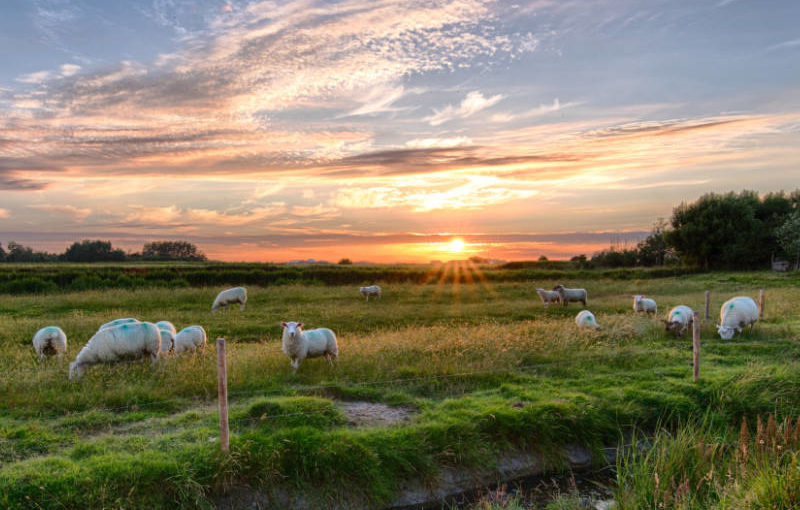An article in The Guardian claims that organic and pasture-fed beef and lamb are “the most damaging farm products” and “arguably the most destructive industry on Earth”.
We find this notion absurd.
At best it demonstrates a shallow understanding of regenerative and organic farming practices. At worst, it’s a direct attack on organic and regenerative farming and shameless promotion for a billion dollar fake meat industry.
Is factory food the answer?
The author plugs his latest book Regenesis: Feeding the World Without Devouring the Planet, which offers “Precision Fermentation” aka “farmfree food” as a technological silver bullet to feed the world without agriculture. How? With GMOs, industrial-chemical monoculture and ultra processing.
Yum.
By definition regenerative farming improves landscapes by increasing biodiversity and mimicking nature. A massive herd of sheep eroding a steep mountain pasture is NOT regenerative. A farm with a mix of sheep, cattle, chickens, pigs, food forests, aquaculture, with an abundance of supporting tree species can be.
An organic farm in the wrong hands can be destructive. But so can an organic fair trade banana!
Sacrifice your health to save the planet?
To suggest that organic and regenerative farming practices are bad because they are relatively less bio-diverse than an old-growth forest or because corporate owned organic farms may be profit driven instead of values driven, is in our view irresponsible.
To state that humanity must urgently abandon regenerative animal agriculture for monoculture, GMOs, chemical sprays, fertilisers and ultra processing is ludicrous.
Moving food production from farms to factories and turning the planet into some kind of ticketed nature park will only further divorce humans from nature.
And what about the health consequences?
Why you should know your farmer
Most organic farmers aren’t in farming for quick buck. Their work builds natural capital over time to produce high quality food by continually improving their biggest assets: soil health and biodiversity.
Organic farmers care about quality, values and care of the earth. Profit is usually last on the list of reasons to farm.
But organic certification only regulates non use of toxic substances and animal welfare. They do not guarantee sustainability or farming best-practises.
Food is critical for health
We agree with The Guardian that the food we eat is the single biggest factor in human and environmental health.
Everyday we work to make our food better, healthier and more sustainable.
This means more small farms, more gardening, more artisans, more decentralisation, more community, more abundance, more resilience, more health, more connection and more joy.
Not less.
There was a time when we held George Monbiot’s writing in high regard, but those days seem to be long gone.

